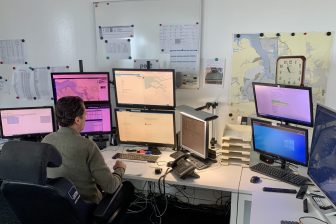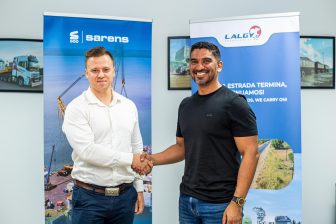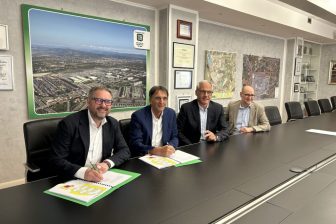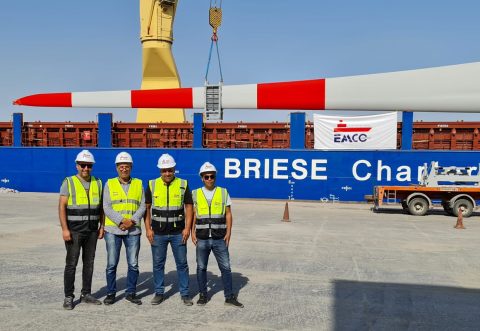
EMCO: A look at Egyptian project cargo
What do 1,300 Russian-made train wagons and a shipment of 213 wind turbine blades have in common? They are both project cargo shipments that have been handled in Egypt by EMCO.
“EMCO is a family business, founded by my grandfather Farouk Abdullah, in 1979. After retiring from the navy, he became a chief pilot in the Suez Canal authority. EMCO is a full agency covering all Egyptian ports, with its head office in Alexandria. There are also offices in Port Said and in Suez, covering the Suez Canal transit as well. We have experience in timber and general cargo vessels, as well as project cargo and heavy lift,” said managing partner Ahmed Afifi, who joined the company in 2018.
“EMCO has two sister companies. EMCO Shipping is the full agency with an open tonnage licence. Then, there is EMCO Logistics which handles freight forwarding and logistic services inside of Egypt, including inland transportation and customs. EMCO Trans is the newest addition, founded in 2016. It has its own fleet of four trailers and can also provide inland transportation services. We also outsource to meet our customer needs. EMCO Group represents the three companies,” he continues.
Regarding project cargo in Egypt, Afifi explains that: “Following the 2011 revolution, there was not much investment in Egypt. But since then, things have gone back to normal, and Egypt is now developing, so there is a lot of project cargo in Egypt at the moment.” According to him, EMCO interacts most with project cargo as a port agent, for companies including BBC Chartering and Briese Schiffahrts. Two of their main project cargo endeavours include the following.
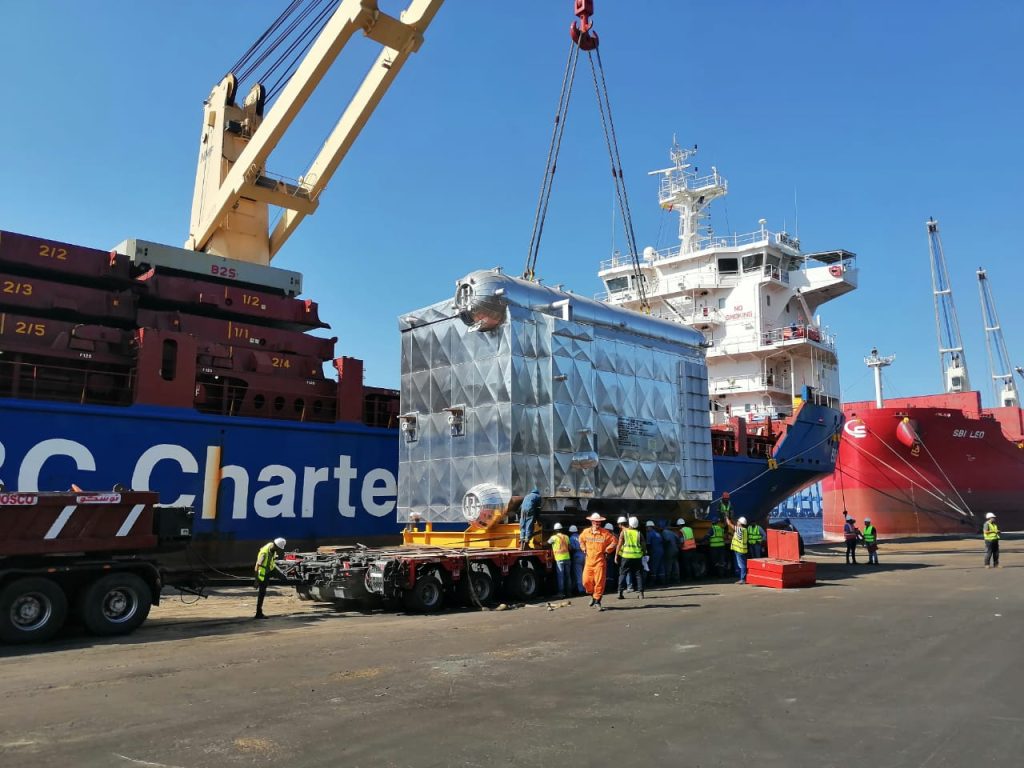
Russian Wagons
“One project we facilitated was the import of 1,300 railway wagons from Saint Petersburg, to Alexandria, starting in June 2020. This deal between the Egyptian National Railways and Transmashholding, for 1.16 billion EUR, was the largest deal in the history of Egyptian National Railways. The Ministry of Transport wanted to modernise the entire fleet of railway wagons in Egypt, because Egypt had the oldest railway network, left over from the British. We acted as port agent for Briese Chartering for the vessels that brought the railway wagons and discharged them in the port of Alexandria,” stated Afifi.
“Each shipment carried 21 to 30 wagons measuring 24.5 metres in length, and weighing about 40 tonnes, and two vessels arrived regularly each month. We handled the vessel berthing in collaboration with the Port of Alexandria Authority, and the arrival formalities. We also handled the discharging operations in collaboration with the Egyptian National Railways, who supplied the tow trucks that towed the wagons after the wagons were discharged directly onto the rail tracks,” he continued. However, the project stopped, not due to the pandemic but because of the war between Russia and Ukraine. Indeed, “the wagon production stopped so the project is on hold,” said Afifi.
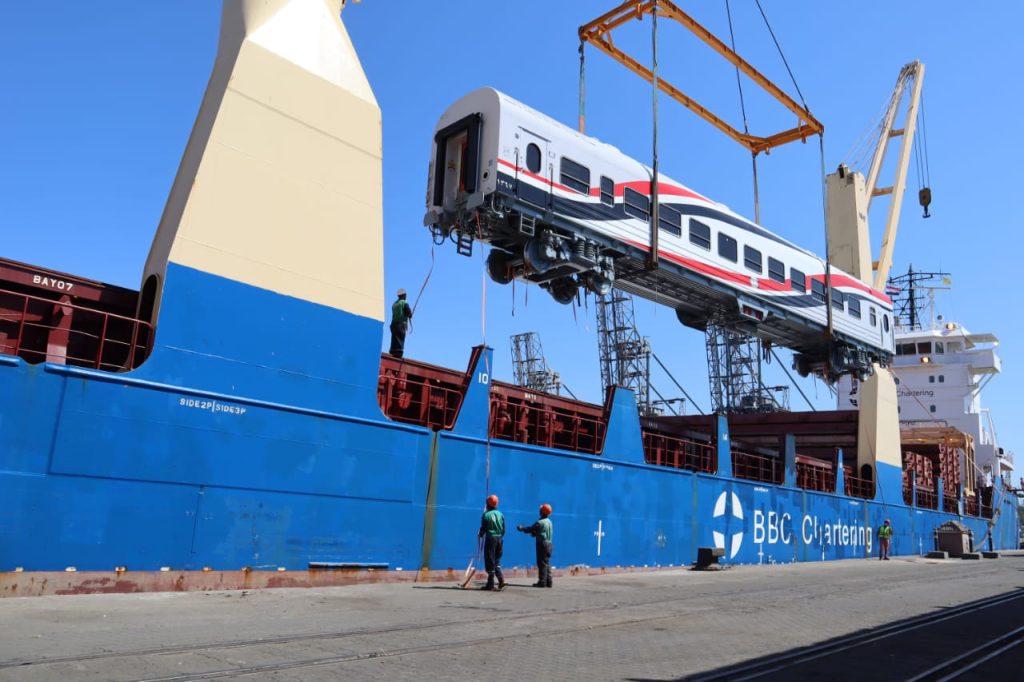
Wind energy cargo
“The Egyptian New & Renewable Energy Authority made a deal with Vestas for building wind farms in Egypt with a capacity of 252MW in the Gulf of Suez. EMCO’s role is handling the port agency for Briese in Adabiya Port. The shipments consist of 213 windmill blades, measuring around 51 metres each. The vessels started arriving in Adabiya Port, in the Red Sea, at the end of July this year. Each vessel carried around 42 blades, and there were about five shipments needed to complete the delivery. Just last week I was in Adabiya Port, and I attended the unloading of 42 blades from the BBC Lagos vessel. BBC Lima and BBC Balboa have also made deliveries,” shared Afifi.
“These blades are coming from a loading port in Taranto, Italy. They transited the Suez Canal also under our agency, so we handled all the formalities for the vessel to transit through the canal, south down from Port Said, through Suez, and down to Adabiya Port, and then we handled port agency tasks at Adabiya Port. We helped with discharging the blades in coordination with the receivers, Kuehne + Nagel, acting as agents for Vestas there, in Egypt. In coordination with them, we discharged the 42 blades onto low-bed extendable trailers, and then we handled the vessel transit back north before it left for Italy,” he concluded.
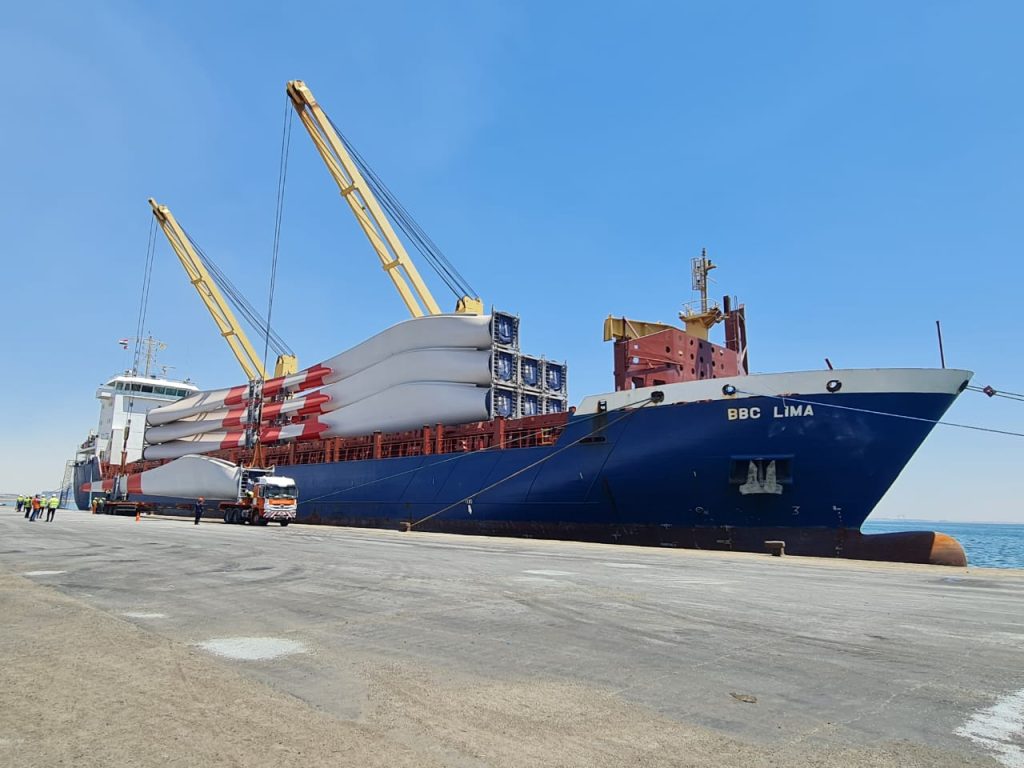
Looking forward
“Our main business is timber vessels which come from Scandinavia, specifically Sweden and Finland, to Alexandria. This is our main business, outside of the general and project cargo work that we do for certain German companies. In the future, our main priority is taking care of the market share we have in the timber business, which is half of the market, and expanding it as much as we can. In the project cargo sector, EMCO Logistics is trying to increase its market share as it is a very competitive market in Egypt,” explained Afifi.
“We’d also like to expand our business in the Americas as well. We are part of the Worldwide Agency Association (WWSA) and are representatives for Egypt. Each country only has one association member, so we have a great network through this. If any agent in any port needs assistance or information in Egypt, we can provide that for them,” he concludes.
You just read one of our premium articles free of charge
Register now to keep reading premium articles.


